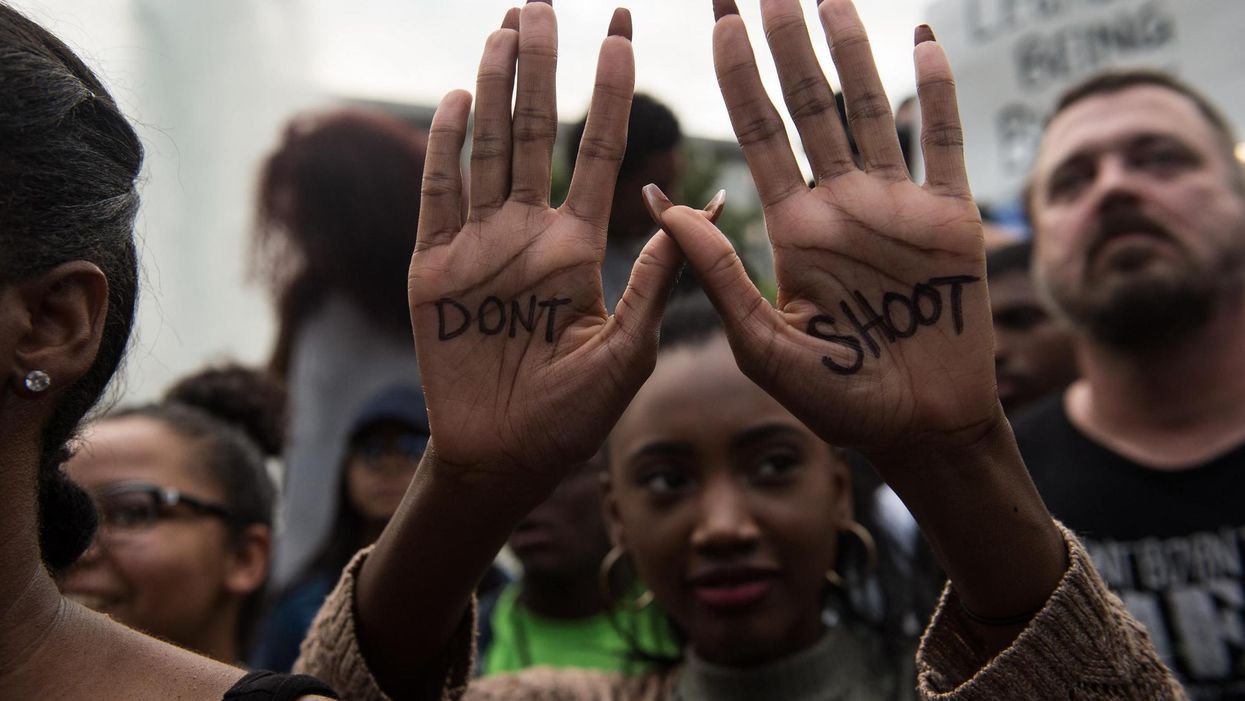News
Narjas Zatat
Jan 18, 2017

Picture: NICHOLAS KAMM/Getty
Picture: NICHOLAS KAMM/Getty
New research into how our body reacts to fear, has theorised a link between how our bodies physically process a threat, and racial bias.
A study by Ruben Azevedo and his team looked into the negative stereotypes associated with black people and threat, in order to determine how processes in the body inform the brain, and vice versa.
The Black Lives Matter movement began in response to the killing of unarmed 17-year-old Trayvon Martin. Protests, both peaceful and conflicted, spread across the US leaving the country feeling more divided than ever.
This new research was spurred by the release of statistics that revealed black Americans are more than twice as likely to be unarmed when killed by police, than white people.
The scientists undertook a number of experiments to assess the “implicit stereotypes of Black individuals as dangerous”.
Participants were showed images of people holding either a gun or a phone in a first person shooter task.
Their heartbeat's was monitored during the test, and images were timed to flash at every heartbeat, in order to monitor the chemical responses to the visual stimuli.
Researchers found that:
In the context of alertness to threat-signalling stimuli, heightened representation of cardiac signals in the brain may enhance the salience of social cues and promote the expression of negative racial stereotypes.
In effect, your heartbeat signals certain racial biases, as prefaced by the way you process threat.
Why does this happen?
The amygdala is a part of the brain that processes emotions, and the brain structure is linked to fear and pleasure responses.
Each time the heart beats, it sends a signal to the brain, and the amygdala.
When we feel fear, our heart automatically speeds up, activating the amygdala.
Researcher Sarah Garfinkel explained to Researchgate:
Each time the heart beats, it activates receptors known as baroreceptors, which are stretched, pressure-sensitive receptors that get pinged when the heart ejects blood. These send signals to the brain and activate the amygdala with every heartbeat. We know the amygdala is the part of the brain which deals with fear and threat processing.
She added:
A faster, stronger heartbeat gives greater potential to tap into these signals, resulting in more stereotyped, racist behaviour.
More: Toni Morrison sums up racism in less than 100 words
More: The majority of Trump supporters think black people are 'less evolved', survey shows
Top 100
The Conversation (0)













